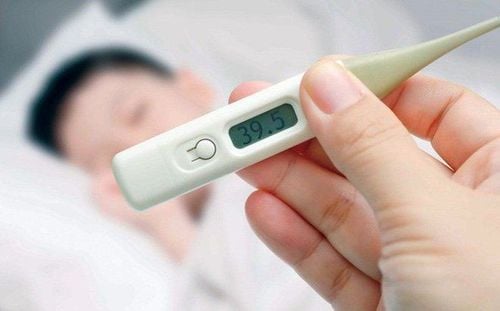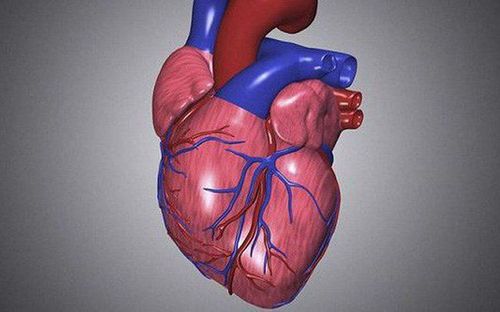This is an automatically translated article.
The article was professionally consulted by a Doctor of Cardiology - Thoracic Surgery, Vinmec Central Park International General Hospital.Symptoms of acute myocarditis, such as chest pain and arrhythmias, are similar to those of other heart conditions. Therefore, early recognition and differentiation of signs of myocarditis play an important role for timely and correct treatment.
1. Situation of acute myocarditis
Myocarditis is caused by viruses that attack and damage heart muscle cells. The heart will become inflamed, necrotic, vasodilated, or contract very weakly when infected with bacteria and can cause heart failure, even sudden death. The subjects susceptible to myocarditis are children, the younger the child, the more severe the disease is because the child's resistance is still weak. Myocarditis progresses very quickly and the risk of death is quite high. If the symptoms of acute myocarditis are detected early and monitored for treatment when the disease is mild, there is a chance of recovery, but most cases are prone to heart failure or arrhythmia later on. .The consequences of myocarditis are particularly serious, while the initial clinical symptoms of acute myocarditis are often quite mild and vague, and difficult to detect. Therefore, patients and family members easily ignore or confuse signs of myocarditis with other diseases such as fever. In fact, hospitals have received many cases of pediatric patients who have suffered from severe respiratory failure, weak breathing, fainting, very fast heart rate and cyanosis of the whole body. More dangerously, there are parents who bring their children to the emergency room in a state of heart failure, arrhythmia, cardiogenic shock and even a very poor prognosis, the ability to survive within only a few hours.

Các triệu chứng viêm cơ tim cấp lâm sàng ban đầu thường khá nhẹ và mơ hồ, rất khó phát hiện
2. Signs of myocarditis
2.1. Systemic symptoms For breastfed infants, viral myocarditis is acute and very severe. In children 2 to 5 years of age, acute myocarditis will have some relief of symptoms. However, in general, it is difficult for parents to realize that their child is suffering from this condition. Sometimes, symptoms of acute myocarditis simply manifest as crying and whining, refusing to feed, lethargy, and difficulty waking up.In the case of older children or teenagers, signs of myocarditis can begin with respiratory symptoms such as fever, cough, runny nose or wheezing. In addition, may be accompanied by manifestations of gastrointestinal disorders such as nausea, vomiting and diarrhea. But in general, myocarditis often has no specific symptoms, even though the virus has existed and destroyed heart muscle cells before. This is the cause of the patient's condition when the patient came to the clinic at a rather late stage, at this time, signs of dilated heart muscle may appear.
Specifically, about 20-80% of patients infected with the virus will develop some systemic manifestations and may be associated with symptoms of acute myocarditis, including:
High fever around 39 to 41°C Fatigue , shortness of breath or shortness of breath, labored breathing Pale skin and lips Cold extremities Musculoskeletal pain The pulse is very light or imperceptible.

Trẻ bị sốt cao do nhiễm virus có thể là triệu chứng viêm cơ tim cấp.
2.2. Cardiovascular symptoms
When taking the child to a medical facility, cardiologists will base on a number of heart symptoms as follows:Blurred heart sound: This is an early symptom and is very valuable in diagnosis. . The first voice can be heard faintly at first, then the second sound can be faintly heard. Fast heart rate but weak pulse, low blood pressure, especially diastolic blood pressure. Heart palpitations, palpitations or pain in the chest in front of the heart The patient feels short of breath both with exertion and at rest. Functional mitral regurgitation and dilated left ventricular chamber produce gallop, systolic murmur. When myocarditis spreads, symptoms of heart failure appear. To accurately detect the signs of myocarditis requires a meticulous examination process, conducting tests in combination with echocardiography, as well as the in-depth professional experience of the physician. If the treatment is wrong and not effective, the symptoms of acute myocarditis will manifest as cardiogenic shock or severe arrhythmia, the risk of life-threatening to the patient is quite high.
Please dial HOTLINE for more information or register for an appointment HERE. Download MyVinmec app to make appointments faster and to manage your bookings easily.













